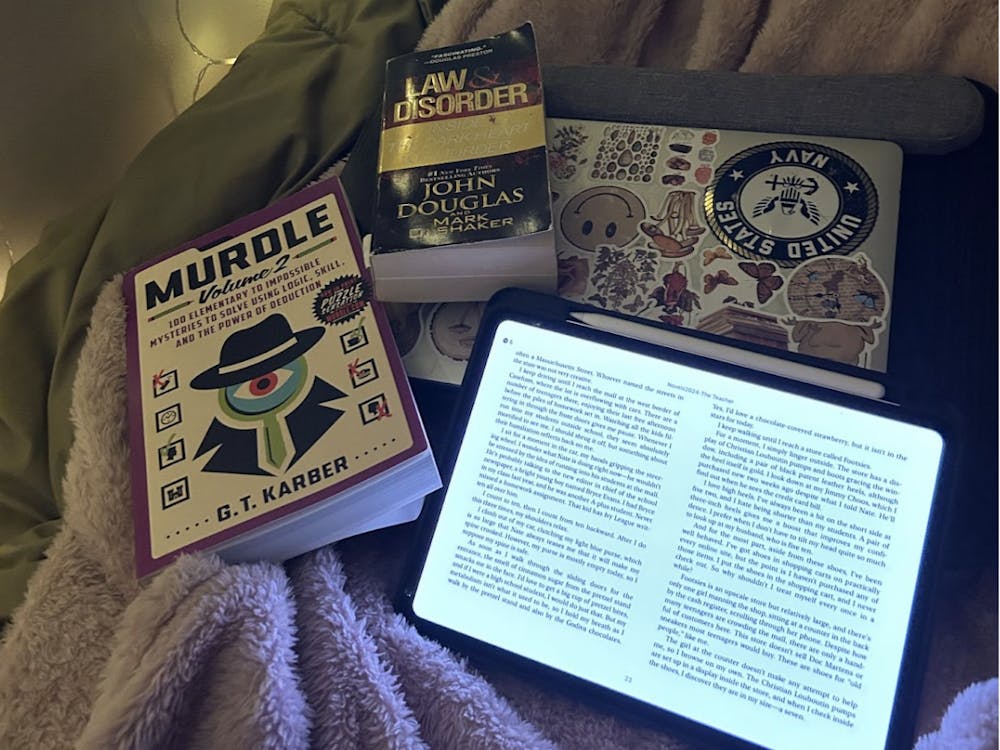On Nov. 6, Former President Donald J. Trump was announced as the winner of the 2024 presidential election over Vice President Kamala Harris. Trump has received 295 electoral votes, including decisive votes from various swing states, compared to Harris’ 226, and will return to office for a second term.
In addition to the presidential race, the 2024 elections also included races for governor, Senate, the House of Representatives, state and local officials and ballot measures. In Maryland, Harris won the state, Angela Alsobrooks won the race for a Senate seat and Brandon Scott was elected to a second term as Mayor of Baltimore. Hopkins students expressed their opinions about the election and their perspectives about its consequences for the future.
In an email to The News-Letter, senior Wubishet Taye voiced her opinions about the outcome of the elections.
“I’ve been distraught. I am absolutely heartbroken,” she said. “I feel like America has betrayed me. As a woman, as a black woman, as an immigrant who became a citizen recently. Electing a literal felon instead of a very qualified woman is a bitter reminder that nothing has changed and that women, POC women, continue to be hated.”
The New York Times called the race for Trump early Wednesday morning. Harris and Trump were largely competing for seven key battleground states: Arizona, Nevada, Michigan, Wisconsin, Pennsylvania, Georgia and North Carolina. Trump has won five of these states, with the Arizona and Nevada yet to be called, and ultimately secured the victory as a result.
In an interview with The News-Letter, Professor Robert Lieberman, the Krieger-Eisenhower professor of political science, provided his thoughts on the outcome of the election.
“The fact that Trump won was not by itself a surprise,” he said. “What I don’t think I was prepared for was the magnitude of the victory. It’s not a landslide, but compared to the last two elections, it’s quite a decisive victory.”
Caitlyn Ramdat, a junior, shared her perspective of what led to Trump’s victory, in an email to The News-Letter.
“I will say the presidential race wasn’t entirely unexpected. I often feel like it’s a lull and pull that comes with elections,” she wrote. “Trump won this year because of how wronged Republicans felt about the Biden presidency. This, combined with the fact that Harris only had a little over 100 days to run a whole campaign, didn’t make for the best circumstances for a Democratic win.”
There was an apparent red shift in the election results. According to The New York Times, Trump improved his performance in 2367 counties and gained support from those that historically leaned Democratic.
In an email to The News-Letter, the JHU College Republicans described their thoughts on the red shift in multiple branches of government.
“President Trump’s landslide victory, the Republican control of the Senate and, very likely, the House, is a testament to positive change Americans yearned to see in our country,” they wrote. “[The] results were a resounding mandate for conservative leadership: a mandate for merit and hard-work, a mandate for strong families and a good education, a mandate for world peace and secure borders, a mandate for energy independence and national prosperity, and a mandate for freedom and the American Dream.”
Sophomore Aneesh Swaminathan, president of JHU College Republicans, shared his perspective in an email to The News-Letter.
“I was not at all surprised by the outcome of the election. Given the direction of our country, especially in terms of cost of living and inflation, I thought it was pretty clear that Trump would win this election,” he wrote. “While his margin of victory did, however, surprise me, it only further showed how much voters care most about the bread-and-butter issues at the end of the day.”
He then mentioned that many left-leaning students he interacted with post-election expressed distaste for Trump’s victory on a moral and character level. He highlighted that most voters do not vote based on character judgment but rather on policy, suggesting that Trump’s policies were more attractive to American voters.
Both of the University’s partisan groups followed up with responses to the election. In an email to The News-Letter, the JHU College Democrats shared a statement reflecting their sentiments on the election and hopes for the future.
“Today is a dark day in America. There is no doubt that Republicans have successfully appealed to many voting blocs, particularly young men, on the economy,” they wrote. “However, we still remain hopeful… Regardless of the outcome, we witnessed a historic grassroots campaign that brought together a wide range of people and ideologies.”
Students and faculty raised qualms about President Trump’s competency in leading the nation. With the Republican Party projected to also control the Senate, many raised concerns about the imbalance of power.
“I am beyond terrified about the future. Project 2025 is absolutely terrifying, and the fact the Senate, Supreme Court and President are all red makes me so hopeless to see any progress being made,” Taye wrote.
“For the country, I think it’s a very dangerous moment. I think that [Trump’s] inclinations are extremely dangerous for democracy,” Lieberman added. “He has very little patience for the constitutional process. He now has the Senate, which will enable him to appoint like-minded judges and other officials sort of unimpeded.”
In an interview with The News-Letter, senior Christopher Salvador discussed his negative reaction to the election results and reflected on the stark political divide highlighted by the recent election.
“I'm from Florida, that definitely has Republican favor, and I come from a county that is majority Democrat,” he said. “There's a very strong divide between our government: the local government, that’s mainly supported by Democratic leaders and the state government, which is majority Republican.”
This election was the first in which many students at Hopkins participated, and many reflected on their experience voting. In the 2020 election, 69% of the eligible student population at Hopkins voted, according to the Institute of Democracy and Higher Education.
“I voted for my home state (shout out Hudson County). The process was a little chaotic, trying to get a mail in ballot, but in the end I ended up sending my ballot in mid October),” Ramdat wrote.
Students also expressed mixed feelings about the future and shared how they hope to move forward regardless of disappointment with the election result.
In an interview with The News-Letter, junior Sophia Jaramillo described that voting is only one part of broader civic engagement that can foster change.
“Moving forward, we need to keep practicing activism and speaking about these issues. Voting is not really our only form of activism and showing support — keeping those efforts strong so we will hopefully see change in the future,” she said.
Similarly, in an email to The News-Letter, senior Tobi Park shared discontent with the results and reflected on the importance of continued civic engagement and advocacy.
“I worry that students think it's too late and everything is fucked and our rights are gone and we should just give up. Absolutely not. There is still so so much hope. There is so much to work for,” Park wrote. “Get plugged into an org or a community, get active and get loud…The knowledge you have is powerful.”





